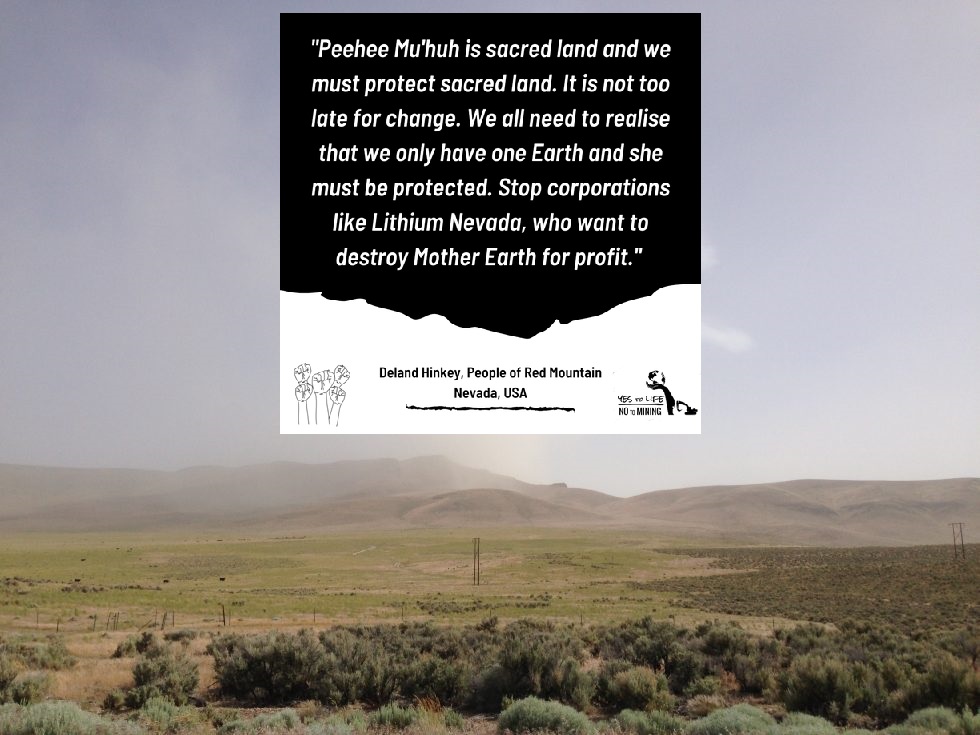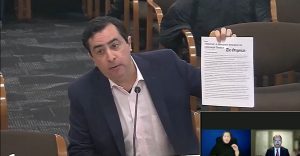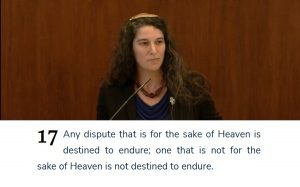‘Lithium mine bulk sampling’ actually means cultural genocide
6 min read
by Protect Thacker Pass
OROVADA, NEVADA (September 20, 2022) Lithium Nevada Corporation (LNC), the company behind the embattled Thacker Pass lithium mine project, has begun digging up portions of Thacker Pass for “bulk sampling” despite consultation still being ongoing between the Bureau of Land Management and regional tribes over cultural sites.
Will Falk, attorney for the Reno-Sparks Indian Colony and the Summit Lake Paiute Tribe and co-founder of the opposition group Protect Thacker Pass, says this is a violation of federal law.
“The Federal Government has not even meaningfully started consultation with tribes about the September 12, 1865 massacre site in Thacker Pass, let alone the earlier Peehee Mu’huh massacre described in oral history and the entire Thacker Pass Traditional Cultural District,” Falk said. “But that doesn’t even begin to describe how much of a dirty trick this is. BLM is allowing the destruction of a massacre site without consulting, over the objections of multiple tribes and members of the public, using a permit more than a decade old.”
“Thacker Pass is a living traditional cultural place where Paiute and Shoshone people still gather to practice our culture,” says Michon Eben, Tribal Historic Preservation Officer for the Reno-Sparks Indian Colony. “The Snake War was the most violent Indian war in the west, and not a single site from this important event for our people is protected. BLM and Lithium Nevada are destroying our cultural heritage with this dig.”
Over the past six weeks, at least four tribes – the Reno-Sparks Indian Colony, Summit Lake Paiute Tribe, Winnemucca Indian Colony, and Pyramid Lake Paiute Tribe – have all demanded that BLM designate the entirety of Thacker Pass as an historic or traditional cultural district eligible for inclusion on the National Register of Historic Places.
BLM has also received letters from members of the public and experts such as Alexa Roberts, former National Parks Superintendent at the Sand Creek Massacre Site in Colorado. Ms. Roberts informed BLM of “striking similarities” between the Sand Creek and Thacker Pass massacres, and urged the agency to protect the entire landscape as a National Historic District.
The tribes assert that all of Thacker Pass should be considered eligible for listing under the National Register of Historic Places because the site contains a unique record of more than 10,000 years of Native American history, including the Thacker Pass component of the “Whitehorse Obsidian Procurement District,” the presence of tools and arrowheads, millennia-old seasonal camps, two massacre sites, oral histories regarding the importance of the Pass, significant medicinal and food plants, culturally-significant animals such as golden eagles and sage-grouse, and ongoing traditions of hunting, gathering, and religious practice.
The tribes are arguing that additional damage to the Thacker Pass landscape jeopardizes its ability to be listed on the National Register of Historic Places.
The Planned Digging
Attorneys for LNC informed mine opponents of the work in a Sept. 9 email, writing that “Lithium Nevada will be performing some bulk sampling under its Kings Valley Lithium Exploration Project Plan of Operations.”
The Kings Valley project was permitted more than a dozen years ago and included only cursory consultation with one tribe. However, BLM has been criticized in Federal Court for failing to consider 2009 statements from Dale Barr, then-chairman of the Fort McDermitt Paiute-Shoshone Tribe, made in response to BLM’s inquiries about sacred sites in Thacker Pass and Kings Valley, that Thacker Pass was historically and culturally significant due to oral histories of the Peehee Mu’huh massacre.
Despite Barr’s statements being documented in BLM records brought to light in the lawsuit, BLM’s final Environmental Assessment for the King’s Valley Lithium Project states erroneously that “Fort McDermitt Tribal Chairman Dale Barr stated that the Tribe had no concerns about the Project.”
According to oral histories, the Peehee Mu’huh massacre took place on the west side of Thacker Pass, where Lithium Nevada plans to perform their “bulk sampling. “
“On July 18 of this year, after one year of litigation, BLM finally acknowledges a massacre took place in this area and they still continue to sanction the destruction of our ancestors final resting place, a human rights violation. In simple terms this is cultural genocide being committed on our tribal homelands,” says Eben.
“The scenario that is currently unfolding is precisely why the Reno-Sparks Indian Colony and Summit Lake Paiute Tribe have specifically requested that any construction work or other physical disturbance in Thacker Pass be suspended until BLM completes the 36 CFR § 800.13(b)(1) post-review discoveries process,” Falk said. “Yet BLM continues to ignore this request.”
Shelley Harjo, a tribal member from the Fort McDermitt Shoshone Paiute Tribe, has called the planned destruction of Thacker Pass “the biggest desecration and rape of a known Native American massacre site in our area.”
Max Wilbert, co-founder of Protect Thacker Pass with Falk, recently reported that online bots were being used to spread online misinformation about protesters. Falk and Wilbert are currently fighting a $49,890.13 fine levied against them by the BLM after they constructed a pit toilet for native elders as part of a year-long protest encampment last year.
Tribes have recently been made aware of allegations that Native American artifacts were stolen from Thacker Pass during BLM-authorized archeological excavations earlier this summer.
Ky HeartNotInWar had this to say upon seeing drone footage of what looked like mishandling of Native American artifacts at Thacker Pass.
[00:05:39] Ky HeartNotInWar: Back to camp, I probably hadn’t even been there for 10 minutes, I was down at the gas station and a really good friend of mine calls and says, ‘Hey, you know, we’ve got an issue, get here now.’ So I said, ‘Oh man, that sounds pretty intense.’ So April 16 at about 11:09 a.m., we saw a bulldozer that had just scraped a trench, not very wide.
[00:06:09] And it looks like that they had been trying to stay within the confines of the law and legalities. And so, in this trench, there’s individuals that are pondering around, you know, collecting dirt samples. You know, you can see them collecting the dirt samples. Okay. You’re able to see that the cultural monitor isn’t monitoring properly.
[00:06:29] You can see him laughing, joking around having a good time, just like good old bros. And that’s not, you know, your smiles aren’t welcome here. Your laughter is not welcome there, in regards to digging things up like that. And in the video, as the video goes on, you see two motions of something being dragged out of the earth, or picked out of the earth per se, and handed to the individual that’s above the trench in a way that my drone can’t really see a hundred percent what it is, but, you know, being a cultural person, you can kind of make out the long objects and speculate a little bit as to what those could be. But when you understand the artifacts that are out there, those are spearheads that are being handed off. Those are artifacts, if you will, being handed off. And when, as the video continues, you see them transfer it in a way that’s like, that’s like this and try to hide it.
[00:07:26] And you know, when you have the proof that they’re trying to hide, things like that, that’s dirty. Those are our ancestors. Those are not my ancestors. Those are Paiute and Western Shoshone grandmothers that are out there. Grandfathers, warriors, people, common people, you know, these people that make up the community, that’s what’s lying out there and you don’t take from them.
[00:07:48] You know, that’s why we have these sacred sites, because they’re all we know where things have happened. And energy transfer is a very big thing in our culture. It’s what makes up ceremony. And, you know, it’s one of the foundations to have land. Like, you know, if you don’t have land, you don’t have ceremony, you don’t have water, you don’t have culture.
[00:08:07] You know, you remove indigenous cultural people, you remove the culture, what do you have. You have people that are lost wandering around and almost an endless tunnel of wonderment about what the heck are we about? So you take that land and you take that water, you take us. And you know, right now it’s just this multi battle / war all across the country.
About the Reno-Sparks Indian Colony
The Reno-Sparks Indian Colony formed a federally recognized government in 1936 under the Indian Reorganization Act. Located in Reno, Nev., the RSIC consists of 1,206 members from three Great Basin Tribes – the Paiute, Shoshone and Washoe Tribes. The RSIC is a vibrant, diverse organization, which balances traditional teachings and rich culture with contemporary business methods. Our mission is to offer opportunities for tribal members to improve their lives and enhance tribal values by making community programs, services, and projects available.







